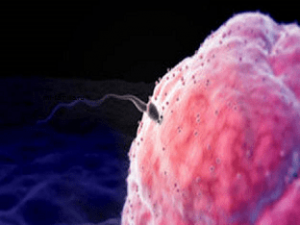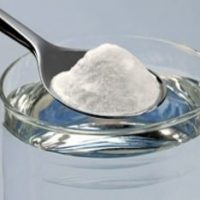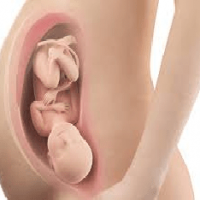 Ovulation happens about two weeks before a woman will get her periods, roughly on Day 14 of a 28 day cycle. The ovum passes through the fallopian tube and travels down towards the uterus.
Ovulation happens about two weeks before a woman will get her periods, roughly on Day 14 of a 28 day cycle. The ovum passes through the fallopian tube and travels down towards the uterus.
Millions of sperms ejaculated by your partner travel to the fallopian tube but only one may fertilise with the ovum and several other million sperms seep out of the vagina or are absorbed in the woman’s body.
The sperms and the egg exchange their genetic properties, setting the way for a girl or a boy, depending on whether the sperm carried a Y-chromosome or an X-chromosome.
There are some things which come up when not much anticipated and so is pregnancy. You and your partner might be planning a baby but when you would really be pregnant you can’t be sure about.
You only realize that you may be pregnant when you miss your period, but you would be surprised to know that until your next expected menstrual cycle you have been carrying a little thing inside you from past 2 weeks.
When Does Pregnancy Happen?
Most women wonder how pregnancy happens. For a woman to become pregnant naturally, she must ovulate.Pregnancy happens when the ovum meets a sperm. This happens due to vaginal sex when sperms are ejaculated in the vagina. Soon after a woman has had her menstrual cycle which lasts for 3-7 days, after that the egg start to mature and the line of uterus thickens.
Ovulation happens about two weeks before a woman will get her periods, roughly on Day 14 of a 28 day cycle. The ovum passes through the fallopian tube and travels down towards the uterus.
Millions of sperms ejaculated by your partner travel to the fallopian tube but only one may fertilise with the ovum and several other million sperms seep out of the vagina or are absorbed in the woman’s body.
The sperms and the egg exchange their genetic properties, setting the way for a girl or a boy, depending on whether the sperm carried a Y-chromosome or an X-chromosome.
The fertilised egg (referred to as zygote) quickly divides into many cells and forms a ball and is called a blastocyst. This fertilised egg should now fix itself in the wall of uterus. This is called implantation and this marks the start of pregnancy. It takes about 5-6 days after fertilisation and about 3-4 days to complete the process.
Though technically, you are not pregnant in week 1 and 2 because conception has not yet occurred. The week of your period and time of ovulation is when the doctors consider pregnancy.
This is the time when fertilisation and conception occurs. A new organ placenta begins to develop in your body and adds nearly a pound to the baby. Until that happens, the baby-to-be has to survive on the nutrients inside the cells. Later placenta becomes a medium of exchange of nutrients and filters wastes. This is the first connection between a mother and the baby.
Technically, pregnancy lasts for 38 weeks from conception, but since it’s difficult to pinpoint the exact date of the time when the sperm and the egg meet, doctors take pregnancy to be of 40 weeks counted from the first day of your last period.
Changes in you- Physical and Emotional
Pregnancy brings in a lot of changes in you both physical and emotional. You might not even realise that you are pregnant before 5 weeks of pregnancy i.e until your next menstrual due date.
Initial signs may be blotting but lighter than periods, cramps due to implantation and there are mood swings similar to as during periods, but soon you will have many signs which confirm you are pregnant.
Some moms would come to know that they are pregnant when implantation happens and some might not. But whatever may be the case your body is trying hard enough to make the baby at home.
There is an increase in the level of hormones, after fertilisation the pregnancy hormone human chorionic gonadotropin (hCG ) releases estrogen and progesterone. This hormone prepares the body for motherhood. The levels of hCG in the blood is quite low initially, so the doctor’s advice to take pregnancy tests in a gap of a week.
Other changes like loosening of muscles and ligaments to make room for the baby, tenderness and increase in size of breast as it prepares to nurture the baby after birth. Feeling of fatigue as the heart is pumping more blood in the body and kidneys are working more to filter impurities out of the blood might cause you to urinate frequently.
While all this is happening inside you, you might not even know that you are parents from last 2 weeks, so go ahead do your pregnancy test, consult your OB, and also find out when is the due date.









